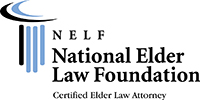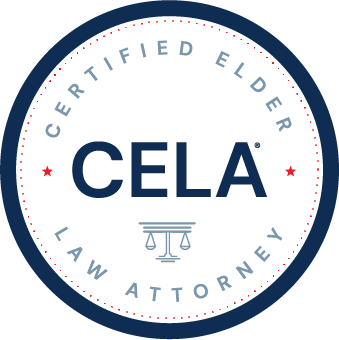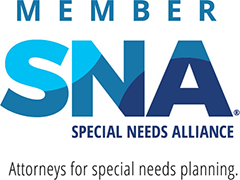By Bradley J. Frigon, Esq.
You remember so clearly how proud you were when you received the telephone call from your Aunt May! She gleefully told you that she just had a new will prepared and named you as the Personal Representative. You felt as if a great honor had been bestowed upon you. After all, this will prove once and for all to the rest of your family that you are the most responsible person to handle such an important matter.
Now that Aunt May has passed on, some of the heirs are calling you and demanding to receive their money right now; or asking if you would mind if they just went over to the house and picked up the china set that Aunt May promised them; or the funeral home is calling to say they want to be paid by the end of the week. You are beginning to realize that just maybe you should not have "volunteered" quite so quickly for this job.
No Idea
Most people have no idea what they are getting into when they agree to serve. Every thing seems so simple at first, however, as you receive more questions and demands from the heirs, you realize how much time this job will take and the potential for personal liability. Still, you have to remember that you volunteered for the job, and you swore to Aunt May that you would make sure that her final wishes were carried out. In other words, you gave your word and now you have to stick by it.
Primary Duties
Personal Representatives have five basic responsibilities:
- to locate and take control of the decedent's assets,
- pay creditors,
- pay taxes,
- locate heirs and finally,
- distribute assets and close the estate.
If a Personal Representative fails to properly perform any one of these duties, the Personal Representative may be personally responsible to the heirs for any loss. This personal liability can range from poor investment decisions and accountings, to underpaid taxes or failing to follow the exact terms of the will. The personal liability issue may not be an overriding concern when the Personal Representative is the only heir, but in estates with potentially feuding heirs, personal liability should be a primary concern.
Getting Started
Generally, a Personal Representative (“PR”) has no authority over the estate’s assets until appointed by the court. To obtain the necessary authority, the decedent’s will must be admitted to probate and the PR appointed by the court. Depending on the terms of the will, the PR may have to post a bond. The PR may be personally liable to the heirs for any loss to the estate’s assets if he or she fails to start the probate process within a reasonable time and does not take immediate control of the estate’s assets.
In Colorado, there are two basic types of probate proceedings: informal and formal. Generally, the type of proceeding used will be dictated by the terms of the will and the circumstances of the case. If the decedent directed that informal probate be used, and there is no dispute regarding the authenticity of the will, then the estate may be opened informally. If the heirs are fighting or there is some dispute regarding the will being offered into probate, then, generally, the estate will be administered in formal probate proceedings.
Most estates in Colorado are probated by informal proceedings, which are simple, relatively quick, and inexpensive. In an informal probate proceeding, a person who has interest in the estate, usually the PR as designated in the will, applies for appointment as the PR to the court registrar in the county where the decedent resided or owned property. The applicant files the will with the court, and states to the court that he or she is all interested person of the estate, the date of death of the decedent, the address of the decedent’s residence at the time of death, and the names and addresses of all persons who have an interest in the estate. If all is in order, the probate registrar of the court will open an estate, appoint the PR, and issue Letters Testamentary, which are the PR’s credentials. The PR must provide notice to all interested parties of the appointment and to known creditors. The estate administration then begins. Assistance from the court is not required, but is available if needed.
Formal probate proceedings in Colorado are more formal and are lengthy and expensive. Formal probate proceedings begin with an interested person, who is usually the PR designated in the will, petitioning the court to open an estate and to admit the will to probate. A hearing on the petition is set before the court. Following notice to all interested parties, the court conductsa hearing and receives evidence before deciding if the will should be admitted to probate. The PR is then appointed, and Letters Testamentary are issued. The court will also decide which subsequent matters that must come before the court and any restrictions on the PR’s authority over the estate’s property.
Even if a will is probated by informal proceedings, a potential PR may opt for formal proceedings if he or she believes there will be disputes over the estate. An informal probate can always be converted into a formal probate if a disputeoccurs that is beyond the scope of informal probate proceedings.
Decisions To Make
Though strictly bound by the terms of the will, the PR is faced with many difficult decisions. For example, if there are taxes or debts to pay and a shortage of cash, which property do you sell and how do you go about selling it? Who is responsible to pay thetaxes or debt? Which debts and taxes do you pay first? How do you account for all the money and assets sold? How do you allocate the property among the heirs? If there are minor children involved and a trust is to be set up for them, how do you transfer the assets to the trust for the minor children? When can you distribute the assets to the heirs without risking a cash shortfall? Do you need court approval before you sell estate property? Do you need court approval to make distributions of estate property to the heirs? The list of questions and potential problems can be endless. That is why it is essential for the PR to immediately hire an attorney experienced in probate and estate administration. The attorney must be knowledgeable in probate matters, and also in income tax, federal estate tax, Colorado estate tax, real estate and business matters.
Distribution of Assets
Probably the toughest part of being a PR is deciding when and how much of theestate assets to distribute to the heirs. The PR may begin distributions to heirs before the estate is closed, and the family often insists that the PR do just that. However, if there is not enough money left in the estate to pay all debts and taxes, then any short fall will probably come out of the PR's own pocket.
The best way to avoid problems with the heirs is simply to keep the heirs informed about what is happening in the estate settlement process. This means the PR should periodically call each heir and give an update. Even with good communications there can be animosity between heirs. This ill will is especially true in distribution of the personal possessions such as jewelry, collectible items, and furniture. This process can be emotionally charged if there are children from two different marriages or bad feelings between family members. This is where the PR must consult with the estate's attorney to lay some ground rules for heirs, to make sure these situations do not develop into a full scale dispute.
Taxes and More Taxes
A PR may be required to file six or more sets of tax returns for the decedent. First, there are the final state and federal individual tax returns to be filed. The estate must file a state and federal fiduciary income tax return, along with the appropriate reports to the beneficiaries. In addition, if the decedent's will created any trusts, the PR may be responsible for filing fiduciary tax returns for the trusts.
If the value of the estate is close to $12,000,000, the PR must file a federal estate tax return within nine months from the decedent's date of death. In addition, the State of Colorado will require a state estate tax return to be filed within nine months from the date of death. If a federal estate tax return is filed, and during the decedent's lifetime the decedent made gifts of property of more than the applicable annual exclusion, the PR may be required to file back gift tax returns for the decedent to disclose any unreported gifts. If the decedent owned property in another state, that state may require an additional state inheritance or estate tax return to be filed, along with the appropriate state income tax returns. Also. If the decedent ownedreal property in another state, probate proceedings may have to be commenced in that state as well.
Compensation For Your Efforts
For all your efforts and risk of personal liability, you may receive nothing more than a handshake. Colorado law states that PR's fee must be "reaonsable" based upon the expertise of the PR, the size of the estate and the complexity of the issues involved. Any fee chagred must match the services being provided. A PR cannot charge the same rate to clean out the house versus consulting with the attonrey or investment advisor. Any fee taken will be taxable income to the PR. Most money recieved as an inheritance is tax free. Thus, whether a PR charges a fee is often a tax issue. If the estate is small and not contested, then it does not make sense for the PR to take the fee. If a fee is claimed, the PR's fee is subject to court approval and the fee must be reasonable,
Conclusion
With all the problems a PR must face in settling an estate, the task will be much less stressful if the PR remembers a few basic rules. First, immediately get professional help from an experienced estate administration attorney. Second, start the proceedings quickly and take possession of all estate's assets. Third, do not commingle your assets with the estate assets. Fourth, maintain good records of all transactions. Fifth, keep the beneficiaries informed. Sixth, do not make distributions too quickly, no matter how loud the heirs are yelling for their money. Valid creditor claims must be paid before distributions are made to the heirs. Seventh, do not sell, lease or loan estate assets to yourself or members of your family. Finally, always consult with your attorney before you act.
Knowing that you have followed the last wishes of a loved one can be a fulfilling and rewarding process if you follow the rules. For those persons who choose to go it alone or do not receive competent advice, serving as a PR is an invitation for disaster.
Call (720) 200-4025 now or email us to find out how our Estate and Trust Administration attorneys can adivse you on your fiduciary duties.












